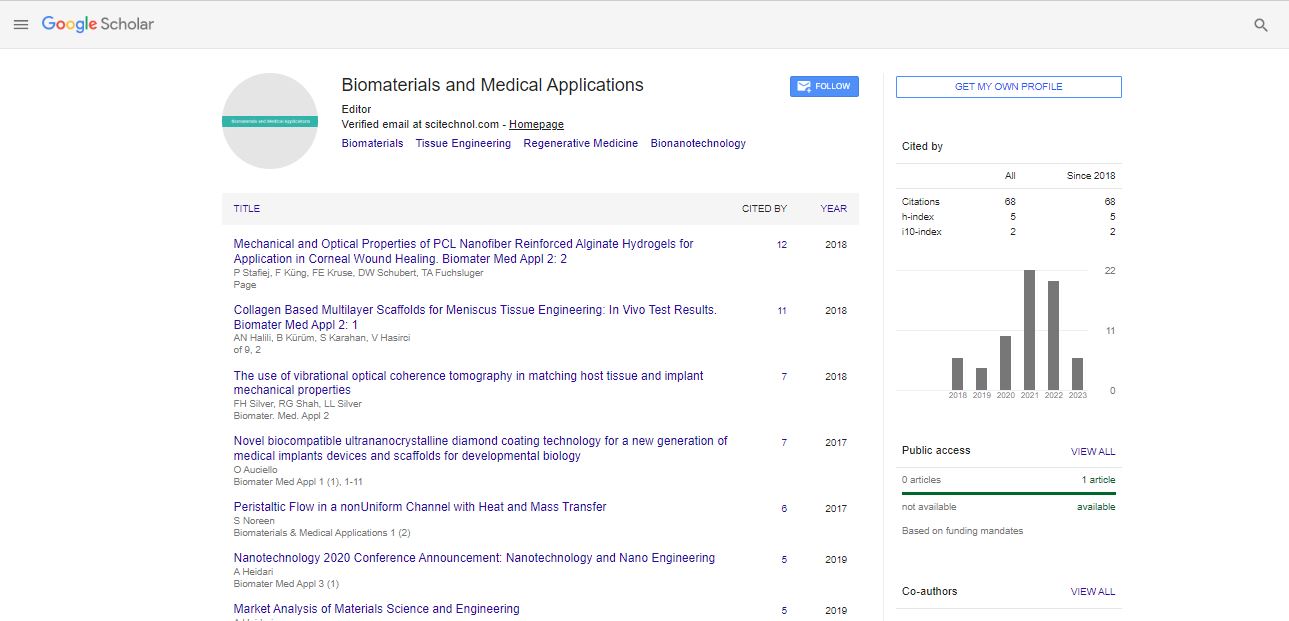Elastic shape memory materials for comfort fitting via 3D printing
Wei Min Huang
Nanyang Technological University, Singapore
: Biomater Med Appl
Abstract
Customization is meant to fit for individuals. Current approaches for customized wearable items, including many biomedical devices, require precise measurement as the first step and then individually produced. 3D printing appears to be just right for the second step. The shape memory materials (SMMs) are featured by the shape memory effect (SME), so that they are able to achieve onesize- for-all. Indeed, we have seen applications of SMMs in various types of splints for precise fitting of individuals without the first step of measurement. However, most of them are made of polycaprolactone (PCL), which is stiff at room/body temperature, since the purpose of splints is mostly meant for providing strong support. As such, any further movement of that part of our body is restricted. Recently, we have developed two types of elastic SMMs, one is thermo-set and the other is thermo-plastic. Both can be used for comfort fitting and for 3D printing. Furthermore, the stiffness of them can be tailored. In this talk, we will introduce these two materials, which may be considered as an elastic version of PCL, so that fitting can be carried out at around body temperature. We will present some typical applications of these materials for comfort fitting in biomedical applications.
Biography
Wei Min Huang is currently an Associate Professor (tenured) at the School of Mechanical and Aerospace Engineering, Nanyang Technological University, Singapore. With over 20 years of experience on various shape memory materials (alloy, polymer, composite and hybrid), he has published over 180 papers in journals, such as Accounts of Chemical Research, Advanced Drug Delivery Reviews, and Materials Today. And he has been invited to review manuscripts from over 190 international journals (including Progress in Polymer Science, Advanced Materials, Advanced functional materials, and Biomaterials, etc), project proposals from American Chemical Society, Hong Kong Research Grants Council, etc, and book proposals from CRC and Elsevier. He has published two books (Thin film shape memory alloys – fundamentals and device applications, and Polyurethane shape memory polymers) and is currently on the editorial board of over two dozens of international journals.
E-mail: mwmhuang@ntu.edu.sg
 Spanish
Spanish  Chinese
Chinese  Russian
Russian  German
German  French
French  Japanese
Japanese  Portuguese
Portuguese  Hindi
Hindi 